Contents
List of Discontinued Olympic Sports
| Sport | First Olympic Appearance | Last Olympic Appearance | Notes |
| Equestrian High Jumping | 1900 (Paris) | 1900 (Paris) | Never returned after its debut. |
| Basque Pelota | 1900 (Paris) | 1900 (Paris) | Later featured as a demonstration sport in 1924, 1968, and 1992 but not officially contested again. |
| Croquet | 1900 (Paris) | 1900 (Paris) | Only played once, with only French participants. |
| Tug-of-War | 1900 (Paris) | 1920 (Antwerp) | Featured in five Olympics before being discontinued. |
| Rackets | 1908 (London) | 1908 (London) | Only appeared once. |
| Jeu De Paume | 1908 (London) | 1908 (London) | Also called “Real Tennis”; only featured once. |
| Lacrosse | 1904 (St. Louis) | 1908 (London) | Appeared twice, then removed. Later played as a demonstration sport. |
| Roque | 1904 (St. Louis) | 1904 (St. Louis) | Exclusive to the 1904 Olympics, only Americans competed. |
| Art Competitions | 1912 (Stockholm) | 1948 (London) | Included in seven Olympics before being discontinued. |
| Aeronautics | 1936 (Berlin) | 1936 (Berlin) | Not a competitive event but an award given only once. |
Sports Removed from the Olympics
1. Equestrian High Jumping
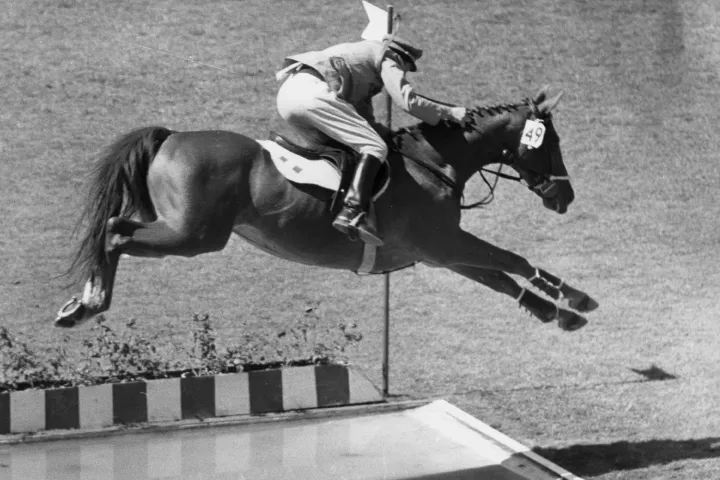
List of Discontinued Olympic Sports, sports removed from olympics, discontinued olympic sports
Equestrian events are commonplace at the Olympics. I even previously wrote about a fascinating Olympic fact that involved these competitions. But the 1900 Paris Universal Exposition welcomed two peculiar events involving horse riding: Long and High jumping! However, only the High Jumping event was recognized as the Olympic (in 1900, the Universal Exposition and the Olympic events were somewhat interconnected).
Fortunately for the horses, this was the last time they were required to jump as high as possible at an Olympic event! A Frenchman, Dominique Gardères, won the only Olympic gold ever awarded for this discipline.
2. Croquet
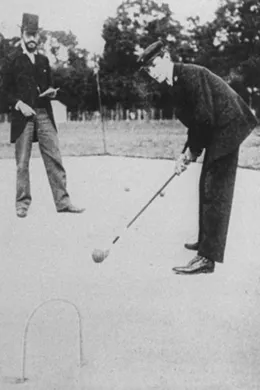
Croquet seems like a fun game to play if you were living in 1850. In Paris in 1900, Croquet became an Olympic event—something that never happened again. Only French competitors participated, so they won all seven medals.
3. Lacrosse
Lacrosse was an Olympic sport on two occasions, in 1904 and 1908. It’s one of those sports that people like me, who grew up in Spain, find “strange” (why don’t Canadians and Americans play something more familiar like Basque Pelota?). Canada is the most dominant nation in Olympic Lacrosse, with two golds from two tournaments, plus an additional bronze medal.
4. Rackets
Rackets is a sport akin to squash, predominantly played in the United Kingdom, the USA, and Canada. It gained immense popularity within aristocratic circles in 18th-century Britain! Perhaps this is why the event was held only once at the Olympic Games—during the 1908 London Olympics.
Only male athletes participated, competing in both singles and doubles, leading to Great Britain securing a total of seven medals (two gold, two silver, and three bronze).
5. Tug-of-War
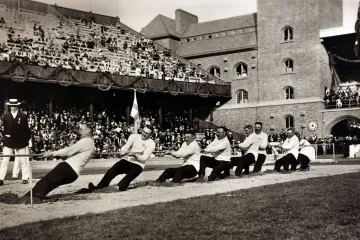
The Olympics featured Tug-of-War contests from 1900 to 1920. This sport involves two teams pulling on opposite ends of a rope, with victory awarded to the side that drags the other past the centre marker. Interestingly, an International Federation still campaigns for its return to the Games.
6. Jeu De Paume
Jeu de Paume was also contested exclusively in the 1908 London Olympics. This game, referred to as “Real Tennis” in the United States, shares similarities with modern tennis but has historical roots.
Much like Rackets, it is a sport deeply associated with British culture. Nine British athletes and two American competitors (all men) participated. Predictably, Great Britain claimed the majority of medals (one silver, one bronze), yet the ultimate triumph of gold belonged to an American competitor, Jay Gould II.
7. Roque
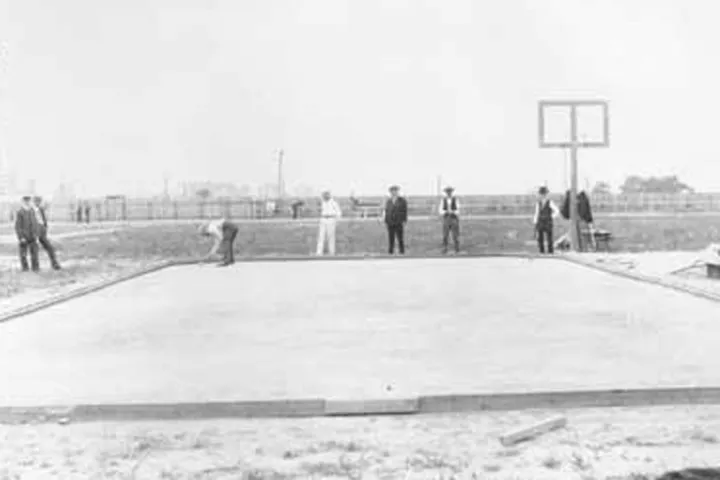
List of Discontinued Olympic Sports, sports removed from olympics, discontinued olympic sports
Roque is a bizarre variant of Croquet. Yes, that’s an actual thing! Croquet was dropped after the lackluster Paris 1900 Olympics. The disastrous Saint Louis 1904 Games—the worst edition in Olympic history—hosted a Roque tournament instead. This was also the last time the event was ever included. The tournament featured only American competitors, so they swept the three medals.
8. Art Competitions
At the Olympics, it referred to traditional disciplines like painting, music, and sculpting. This bizarre idea came from the founder of the modern Olympic Games, Pierre de Coubertin, who thought it would be brilliant to blend intellectual pursuits with athletic competition. Clearly, he was mistaken.
However, this concept lasted for seven consecutive editions, from 1912 to 1948. The Smithsonian Magazine has an interesting article about it, featuring images of the artwork produced during these competitions.
9. Basque Pelota
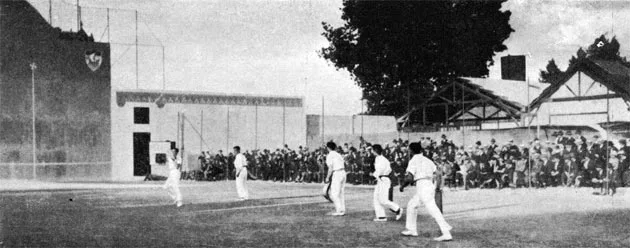
Basque Pelota is mostly played in the Basque Country, which spans Spain and the southwest of France (by the Atlantic coastline of both nations). It’s also a widely practised sport in Mexico. For this reason, the sport was a demonstration event in Paris in 1924, Mexico in 1968, and Barcelona in 1992. But wait a second, “demonstration events” don’t count as Olympic sports! That’s right, but Basque Pelota was officially included at the Paris 1900 Olympics as a legitimate competition.
The most curious part is that only two teams were scheduled (a Spanish and French pair of players). The French contestants became frustrated due to the rules they were expected to follow, so they decided to protest and not play. Only one gold medal was awarded—to Spain, who won by default!
10. Aeronautics
Aeronautics was recognized as an Olympic discipline once, at the 1936 Berlin Olympics. However, it was not a competitive event, but an honorary award, granting only a gold medal.
The purpose was to acknowledge a major breakthrough in the field of aeronautics. The first and last recipient was Hermann Schreiber, a Swiss pilot who became the first person ever to fly over the Alps in a glider, this strange idea only occurred once.
Here you can read Is America Standing Alone Under Trump’s Presidency?
discontinued olympic sports, sports removed from olympics, Sports Removed from the Olympics, List of Discontinued Olympic Sports
